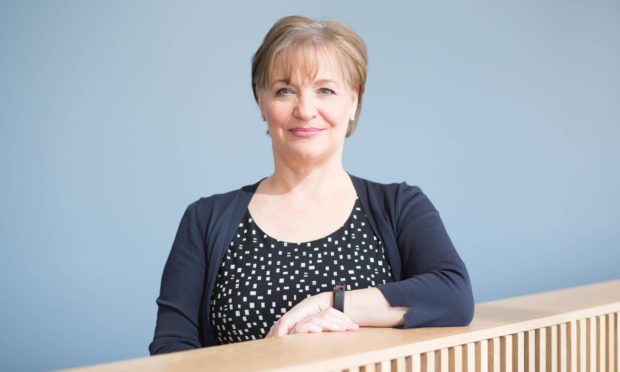A major Scottish study has been launched to assess how the fear of Covid-19 is affecting the lives of over-50s.
People from across the country will be surveyed to find out how the spread of coronavirus is affecting their decisions to socialise, visit family and attend medical appointments.
Researchers at Stirling University say the first-of-its-kind work will help to drive forward social, health and economy recovery after the pandemic.
The study has been awarded £712,000 from the Economic And Social Research Council (ESRC) as part of efforts from UK Research And Innovation to understand the long-lasting effects of Covid.
This will include analysis of the extent to which fear has played a role in people’s decision to get vaccinated against the disease.
Spearheaded by global ageing lecturer Elaine Douglas, it will also act as a “new wave” of her Health Ageing In Scotland (Hagis) study.
Set up with economist Professor David Bell, it follows older people over time to collect data on their health, economic and social circumstances.
Dr Douglas said: “Covid-19 has affected the way in which people connect, look after their health, work and spend.
“However, little is known about the role that Covid-19 fear plays in how people go about their everyday lives, particularly among older people, who are arguably most vulnerable to poor outcomes.
“Our research will look at how people re-engage with society over the year ahead and provide insights for policy and public health messages.”
The Stirling University team includes an economist, health psychologist and two social scientists.
Their study is expected to take around 18 months to complete, with the initial data due for publication next summer.
Regular “rapid” reports and briefings throughout the length of the initiative are also expected to be released.
Dr Douglas added: “This research will provide insight into how people can be supported back into everyday activities.
“It will provide important information for the NHS on how to support those with Covid-19 fear to attend hospital appointments, cancer screenings or other health related appointments.
“It will also give an idea of people’s willingness to return to the ‘physical’ workplace, to go shopping again, or to meet friends in restaurants.
“These activities are significant for our individual wellbeing as well as our economic recovery.”
Last year The P&J reported elderly residents in Oban were refusing to allow contractors into their homes for essential central heating works.
Angus MacPhee, 71, said: “I very rarely go out of the house.
“How do I know it will be properly sanitised when the workers leave?
“A few of my neighbours have said they are not going to let them in.
“I am not taking chances with my life. I have decided they are not coming in.”
While another said: “It’s not just the Covid fear, it is not a good time to have strangers in the house.”
National charities Sight Scotland and Sight Scotland Veterans recently conducted a poll to explore how the pandemic was affecting people.
Chief executive Mark O’Donnell said the research will provide “vital” insight for moving forward post-pandemic.
“70% of those who participated said their sight loss had made lockdown a worse experience, and over 40% they were not confident about going back into the community with social distancing measures in place,” he said.
“This shows it is vital that we develop our understanding about how we can give people, including people with sight loss, the confidence to go back into the community and become involved in activities once more when social restrictions can finally be eased.”
